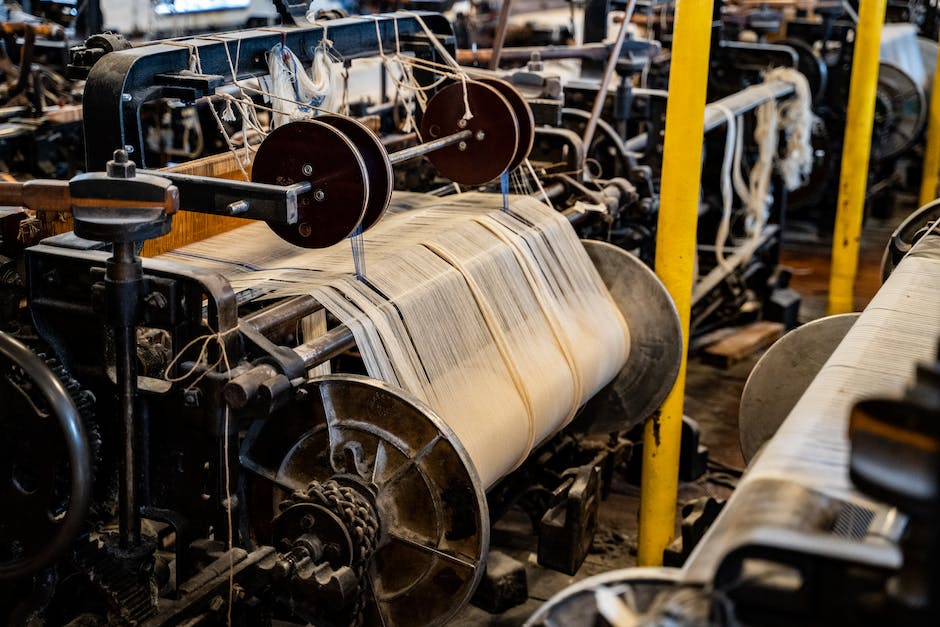Table of Contents
- Introduction
- The Rise of Arab Superheroes: Exploring the Impact of Arab Leaders in the Comic Industry
- Breaking Stereotypes: How Arab Leaders in Comics are Redefining Heroic Narratives
- Cultural Representation in Comics: Arab Leaders Shaping Diverse Heroes
- Empowering Arab Youth: The Influence of Arab Leaders in the Comic Industry
- Q&A
- Conclusion
“Arab Leaders in the Comic Industry: Redefining Heroes” – Unleashing a new era of diverse and empowering narratives.
Introduction
The Arab Leaders in the Comic Industry: Redefining Heroes is an exploration of the significant contributions made by Arab creators and artists in the world of comics. This introduction aims to shed light on the emergence of Arab leaders in the comic industry and their efforts to redefine the concept of heroes within their cultural context. Through their unique storytelling and artistic styles, these individuals have not only challenged stereotypes but also provided a platform for Arab voices to be heard and celebrated. This article will delve into the impact of these Arab leaders, their creative works, and the broader implications for the comic industry as a whole.
The Rise of Arab Superheroes: Exploring the Impact of Arab Leaders in the Comic Industry

The comic industry has long been dominated by Western superheroes, with characters like Superman, Batman, and Spider-Man capturing the imaginations of readers around the world. However, in recent years, there has been a rise in the representation of Arab superheroes, with Arab leaders in the comic industry redefining what it means to be a hero.
One of the most notable Arab leaders in the comic industry is G. Willow Wilson, the co-creator of the groundbreaking character Ms. Marvel. Ms. Marvel, also known as Kamala Khan, is a Pakistani-American teenager from Jersey City who discovers she has shape-shifting abilities. Wilson, who is herself of Egyptian descent, wanted to create a character that reflected the experiences of Muslim-American teenagers. Through Ms. Marvel, Wilson has been able to explore issues of identity, religion, and cultural assimilation, while also providing a relatable and empowering role model for young Arab readers.
Another Arab leader in the comic industry is Saladin Ahmed, the writer behind the critically acclaimed series Black Bolt. Black Bolt, also known as Blackagar Boltagon, is the king of the Inhumans, a race of superhumans with unique abilities. Ahmed, who is of Arab and Muslim heritage, has used the character of Black Bolt to explore themes of power, responsibility, and the struggle for justice. By infusing his own experiences and perspectives into the character, Ahmed has been able to create a nuanced and complex Arab superhero who challenges traditional notions of heroism.
In addition to individual creators, there are also organizations that are working to promote Arab representation in the comic industry. The Arab American National Museum, for example, has partnered with comic book publisher DC Comics to create a series of comics called “The 99.” The series features a team of superheroes, each representing one of the 99 attributes of Allah in Islam. Through these characters, the creators aim to challenge stereotypes and provide positive role models for Arab youth.
The rise of Arab superheroes in the comic industry has had a significant impact on both the industry itself and on Arab readers. By creating characters that reflect their own experiences and cultures, Arab leaders in the comic industry are challenging the dominant narrative and providing a platform for diverse voices to be heard. This not only allows for a more inclusive and representative comic industry, but also helps to break down stereotypes and promote understanding and empathy.
Furthermore, the presence of Arab superheroes in the comic industry has a profound effect on Arab readers, particularly young people. Seeing characters who look like them and share their experiences can be incredibly empowering and validating. It allows them to see themselves as heroes, capable of making a difference in the world. This representation also helps to combat negative stereotypes and foster a sense of pride in Arab culture and heritage.
In conclusion, the rise of Arab superheroes in the comic industry is redefining what it means to be a hero. Arab leaders like G. Willow Wilson and Saladin Ahmed are using their platforms to create characters that reflect their own experiences and challenge traditional notions of heroism. Through their work, they are promoting diversity, understanding, and empowerment. The impact of these Arab leaders in the comic industry extends beyond the pages of a comic book, inspiring readers and shaping the future of the industry itself.
Breaking Stereotypes: How Arab Leaders in Comics are Redefining Heroic Narratives
Arab Leaders in the Comic Industry: Redefining Heroes
The comic industry has long been dominated by Western narratives and characters, with superheroes like Superman and Batman becoming household names. However, in recent years, there has been a growing movement to diversify the industry and challenge the stereotypes that have been perpetuated for decades. Arab leaders in the comic industry are at the forefront of this movement, using their unique perspectives and experiences to redefine heroic narratives.
One of the key ways in which Arab leaders are breaking stereotypes is by creating complex and multidimensional Arab characters. Traditionally, Arab characters in comics have been portrayed as one-dimensional villains or sidekicks, perpetuating harmful stereotypes. However, Arab leaders are challenging this narrative by creating characters that are fully fleshed out and relatable. These characters have their own hopes, dreams, and struggles, just like any other hero.
In addition to creating diverse characters, Arab leaders are also redefining heroism itself. In Western comics, heroes are often portrayed as individuals with superhuman abilities who save the day through physical strength and violence. Arab leaders, on the other hand, are introducing a new kind of heroism that emphasizes empathy, compassion, and social justice. These heroes use their powers not just to defeat villains, but also to fight against injustice and promote peace.
One example of an Arab leader who is redefining heroism is G. Willow Wilson, the co-creator of the groundbreaking comic series “Ms. Marvel.” The series follows the story of Kamala Khan, a Pakistani-American teenager who discovers she has shape-shifting abilities. Kamala’s journey as a hero is not just about fighting crime, but also about navigating the complexities of her identity as a Muslim and an immigrant. Through Kamala’s story, Wilson challenges the notion that heroes have to fit a certain mold and shows that anyone can be a hero, regardless of their background.
Another Arab leader making waves in the comic industry is Saladin Ahmed, the writer of the critically acclaimed series “Black Bolt.” The series centers around the eponymous character, the king of the Inhumans, who is imprisoned and stripped of his powers. Ahmed’s portrayal of Black Bolt is a departure from the traditional superhero archetype, as he explores themes of redemption, identity, and the consequences of power. By delving into these complex themes, Ahmed challenges the notion that heroes have to be perfect and invincible.
The work of Arab leaders in the comic industry is not only redefining heroism, but also challenging stereotypes and promoting diversity. By creating characters that reflect the experiences of Arab people, they are breaking down barriers and giving a voice to underrepresented communities. This is crucial in a world where representation matters, as it allows readers from all backgrounds to see themselves in the stories they consume.
In conclusion, Arab leaders in the comic industry are playing a vital role in redefining heroic narratives. Through their work, they are breaking stereotypes, creating diverse characters, and challenging traditional notions of heroism. By doing so, they are not only reshaping the comic industry, but also contributing to a more inclusive and representative media landscape. As their influence continues to grow, we can expect to see even more groundbreaking stories and characters that defy expectations and inspire readers around the world.
Cultural Representation in Comics: Arab Leaders Shaping Diverse Heroes
The comic industry has long been dominated by Western narratives and characters, with superheroes like Superman and Batman becoming household names. However, in recent years, there has been a growing movement to diversify the comic book landscape and provide representation for underrepresented communities. One such community that has been gaining recognition is the Arab community, with Arab leaders in the comic industry redefining what it means to be a hero.
Arab representation in comics has historically been limited and often stereotypical. Arab characters were often portrayed as villains or sidekicks, perpetuating harmful stereotypes and reinforcing negative perceptions. However, in recent years, Arab creators have been challenging these stereotypes and creating complex, multidimensional Arab characters that defy expectations.
One such Arab leader in the comic industry is G. Willow Wilson, the co-creator and writer of the groundbreaking series “Ms. Marvel.” The series follows the story of Kamala Khan, a Pakistani-American teenager from Jersey City who discovers she has superhuman abilities. Kamala’s character is not only a powerful superhero but also a relatable and authentic representation of a young Arab-American girl navigating her cultural identity.
Through Kamala’s story, Wilson explores themes of identity, religion, and the immigrant experience, providing a nuanced portrayal of Arab-American life. Kamala’s struggles and triumphs resonate with readers from all backgrounds, making her a truly universal hero.
Another Arab leader making waves in the comic industry is Saladin Ahmed, the writer of the critically acclaimed series “Black Bolt.” Ahmed, who is of Arab and Muslim descent, brings a unique perspective to the superhero genre. “Black Bolt” tells the story of the eponymous character, the king of the Inhumans, who is rendered mute and must rely on his actions to communicate.
Ahmed’s writing delves into themes of power, responsibility, and the struggle to find one’s voice. By infusing his Arab heritage into the narrative, Ahmed adds depth and complexity to the character of Black Bolt, challenging traditional notions of what a hero should be.
These Arab leaders in the comic industry are not only reshaping the portrayal of Arab characters but also challenging the industry as a whole to be more inclusive and diverse. Their work serves as an inspiration for aspiring Arab creators and encourages the industry to embrace different perspectives and narratives.
In addition to Arab creators, there has also been a rise in Arab characters within mainstream comics. Characters like Dust from the X-Men and Simon Baz, the Green Lantern, have become fan favorites and have helped pave the way for more Arab representation in the future.
The increased presence of Arab leaders in the comic industry is a step towards a more inclusive and representative medium. By redefining what it means to be a hero, these creators are breaking down barriers and providing a platform for Arab voices to be heard.
In conclusion, the comic industry is undergoing a transformation, with Arab leaders at the forefront of this change. Through their work, they are challenging stereotypes, providing authentic representation, and redefining what it means to be a hero. Their contributions are not only reshaping the comic book landscape but also inspiring a new generation of creators and readers. As the industry continues to evolve, it is crucial that diverse voices and narratives are given the platform they deserve, and Arab leaders in the comic industry are leading the way.
Empowering Arab Youth: The Influence of Arab Leaders in the Comic Industry
Arab Leaders in the Comic Industry: Redefining Heroes
Empowering Arab Youth: The Influence of Arab Leaders in the Comic Industry
The comic industry has long been dominated by Western narratives and characters, but in recent years, Arab leaders have emerged as powerful voices in this creative field. Through their unique storytelling and representation of Arab culture, these leaders are redefining what it means to be a hero and empowering Arab youth in the process.
One such leader is Saladin Ahmed, an Arab-American writer who has made significant contributions to the comic industry. Ahmed, known for his work on Marvel’s “Black Bolt” and “Miles Morales: Spider-Man,” brings a fresh perspective to the superhero genre. His characters are complex and multi-dimensional, reflecting the diversity of Arab culture. By showcasing Arab heroes, Ahmed is challenging stereotypes and providing young Arab readers with relatable role models.
Another influential figure in the Arab comic industry is G. Willow Wilson, the co-creator of the groundbreaking character Kamala Khan, also known as Ms. Marvel. Khan, a Pakistani-American teenager from Jersey City, has resonated with readers around the world, particularly Arab youth. Wilson’s portrayal of Khan as a Muslim superhero navigating her cultural identity has been praised for its authenticity and representation. Through her work, Wilson is empowering Arab youth to embrace their heritage and find strength in their identity.
The impact of Arab leaders in the comic industry extends beyond the characters they create. These leaders are also using their platforms to address social and political issues that affect Arab communities. For instance, Ahmed’s “Abbott” series explores themes of racism and corruption in 1970s Detroit, while Wilson’s “Alif the Unseen” delves into the intersection of technology and authoritarianism in the Middle East. By tackling these important topics, Arab leaders are sparking conversations and encouraging critical thinking among their readers.
In addition to their creative contributions, Arab leaders are also working to increase diversity within the comic industry itself. They are actively mentoring and supporting emerging Arab talent, providing opportunities for aspiring artists and writers to break into the industry. This commitment to inclusivity is not only fostering a new generation of Arab voices but also challenging the industry’s traditional power dynamics.
The influence of Arab leaders in the comic industry is not limited to the Arab world. Their work has garnered international recognition and acclaim, reaching audiences far beyond their own communities. This global impact is crucial in challenging stereotypes and promoting understanding between cultures. By showcasing Arab heroes and narratives, these leaders are breaking down barriers and fostering a more inclusive and diverse comic industry.
In conclusion, Arab leaders in the comic industry are redefining heroes and empowering Arab youth in the process. Through their unique storytelling and representation of Arab culture, they are challenging stereotypes and providing relatable role models for young readers. Moreover, they are using their platforms to address social and political issues, sparking important conversations among their audience. By actively promoting diversity within the industry and mentoring emerging talent, these leaders are reshaping the comic industry’s landscape. Their work has not only had a significant impact within the Arab world but has also reached global audiences, fostering understanding and inclusivity. As the influence of Arab leaders continues to grow, the comic industry is becoming a more diverse and representative space, empowering Arab youth and redefining what it means to be a hero.
Q&A
1. What is “Arab Leaders in the Comic Industry: Redefining Heroes” about?
“Arab Leaders in the Comic Industry: Redefining Heroes” is about the contributions and impact of Arab leaders in the comic industry, specifically in redefining the concept of heroes within the medium.
2. Who are some notable Arab leaders in the comic industry?
Some notable Arab leaders in the comic industry include G. Willow Wilson, Saladin Ahmed, and Marjane Satrapi.
3. How have Arab leaders redefined heroes in the comic industry?
Arab leaders in the comic industry have redefined heroes by introducing diverse and nuanced Arab characters, challenging stereotypes, and exploring complex themes related to Arab culture, identity, and social issues.
4. What is the significance of “Arab Leaders in the Comic Industry: Redefining Heroes”?
“Arab Leaders in the Comic Industry: Redefining Heroes” highlights the important contributions of Arab leaders in the comic industry, showcasing their ability to reshape narratives and promote representation, diversity, and inclusivity within the medium.
Conclusion
In conclusion, Arab leaders in the comic industry are redefining heroes by introducing diverse and culturally rich narratives. Through their work, they are challenging stereotypes and providing representation for Arab characters. This shift not only promotes inclusivity but also allows for a more accurate and nuanced portrayal of Arab culture. As these Arab leaders continue to push boundaries and tell their stories, they are reshaping the comic industry and inspiring a new generation of readers and creators.





Recent Comments